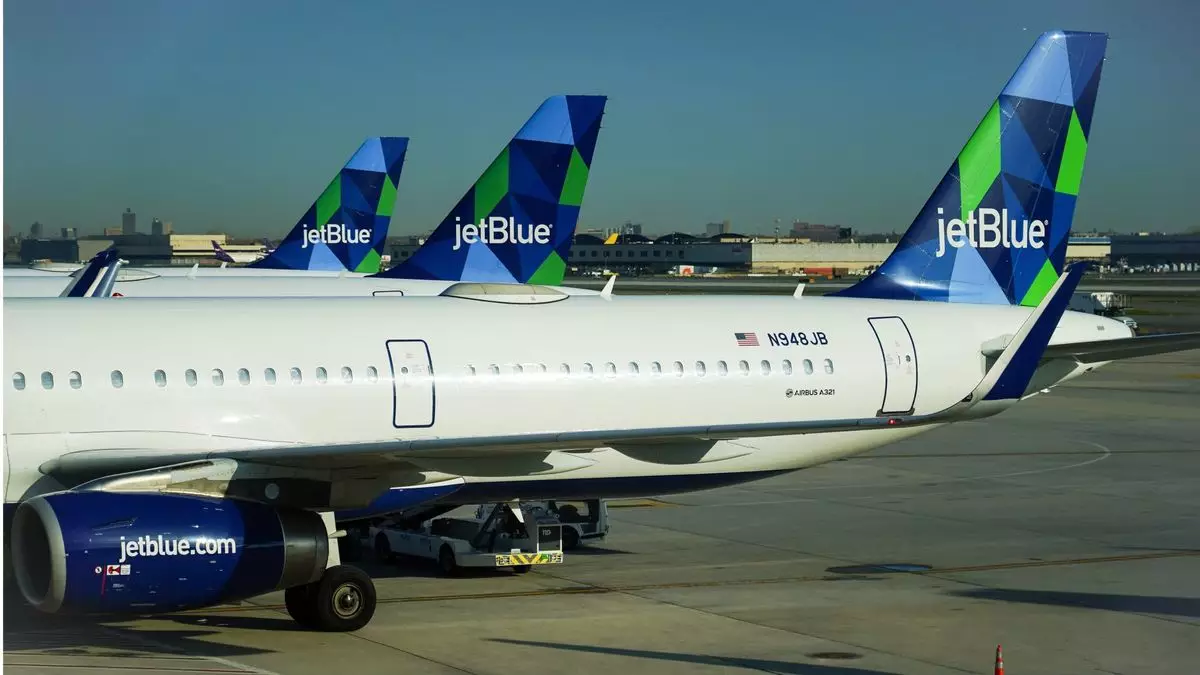In a noteworthy enforcement action, the Department of Transportation (DOT) has imposed a $2 million penalty on JetBlue Airways due to its persistent problem with chronically delayed flights throughout 2022 and 2023. This unprecedented fine marks a significant regulatory move, as it is the first time the DOT has taken such action against an airline for consistently late services. The fine derives from an examination of four specific routes, where flights arrived over 30 minutes late more than half the time over several consecutive months. This situation prompted the DOT to assert that these delays indicated unrealistic scheduling practices—a violation classified under unfair and deceptive business practices.
The regulatory authority underscores the importance of maintaining reliability in air travel. With air travel being a critical component of modern transportation, the DOT’s decision serves as a wake-up call not only to JetBlue but also to other airlines. The ongoing investigations into the flight operations of additional carriers showcase the DOT’s commitment to ensuring that all airlines adhere to standards that prioritize customer satisfaction and operational efficiency.
JetBlue has responded to the DOT’s fine by emphasizing its efforts to enhance operational performance. The airline has reportedly invested millions to tackle the root causes of delays. However, JetBlue has also redirected some of the blame towards external factors, particularly the issues within air traffic control. The airline cites staffing shortages in key markets, especially in the Northeast and Florida, as significant contributors to its operational challenges. This assertion points to a broader systemic issue, indicating that while airlines strive for punctuality, external infrastructural limitations can significantly undermine these efforts.
In a statement, JetBlue called for modernization in air traffic control technology and highlighted the urgency of resolving controller shortages. Such improvements are essential not only for JetBlue but for the overall efficacy of the national airspace system. With a robust call to action directed at the incoming administration, the airline hopes to elevate the conversation about air traffic management and its direct impact on airline operations.
Investment in Customer Satisfaction: JetBlue’s Commitment
As part of the settlement with the DOT, JetBlue has agreed to allocate $1 million from the fine directly to the U.S. Treasury, while the remaining $1 million will be credited for future customer compensation related to cancellations or significant delays attributable to the airline. This commitment highlights JetBlue’s stance on taking accountability for customer experiences. The provision to issue flight vouchers, starting from $75 for affected passengers, underlines an ongoing effort to mitigate the impact of service failures on travelers.
JetBlue’s history as a “laggard” in on-time performance compared to its industry counterparts suggests a broader need for continuous improvement. In reviewing recent performance statistics, JetBlue achieved an on-time rate of 74.5% in 2024, trailing only Frontier Airlines among major U.S. carriers. While this represents an improvement from previous years, the airline must not only achieve acceptable standards but also instill confidence among its customer base regarding reliability.
The broader context of JetBlue’s fine unveils a critical dialogue surrounding operational efficacy in the airline industry. The Federal Aviation Administration (FAA) has recognized the importance of enhancing air traffic controller ranks, aiming to hire thousands of new controllers to alleviate staffing shortages. Despite achieving a target of hiring 1,800 controllers in the last fiscal year, the FAA continues to grapple with a national deficit of approximately 3,000 controllers. This exacerbates the challenges faced by airlines that regularly operate in congested airspace, particularly in high-traffic regions such as the Northeast.
In this environment, it becomes increasingly vital for both airlines and regulatory bodies to collaborate on establishing more realistic flight schedules that not only reflect operational capabilities but also incorporate potential external disruptions. Achieving a balance between customer satisfaction and operational viability is essential for the sustainable growth of the airline industry.
Ultimately, the fine levied against JetBlue serves as a microcosm of the broader issues endemic to the airline industry, where operational challenges intertwine with regulatory oversight and customer expectations. Airline carriers face the dual responsibility of improving their operational frameworks while advocating for necessary infrastructure enhancements to address systemic deficiencies. The interplay between these factors will significantly shape the future of air travel, highlighting the need for a multi-faceted approach to overcome the challenges facing this essential industry.

